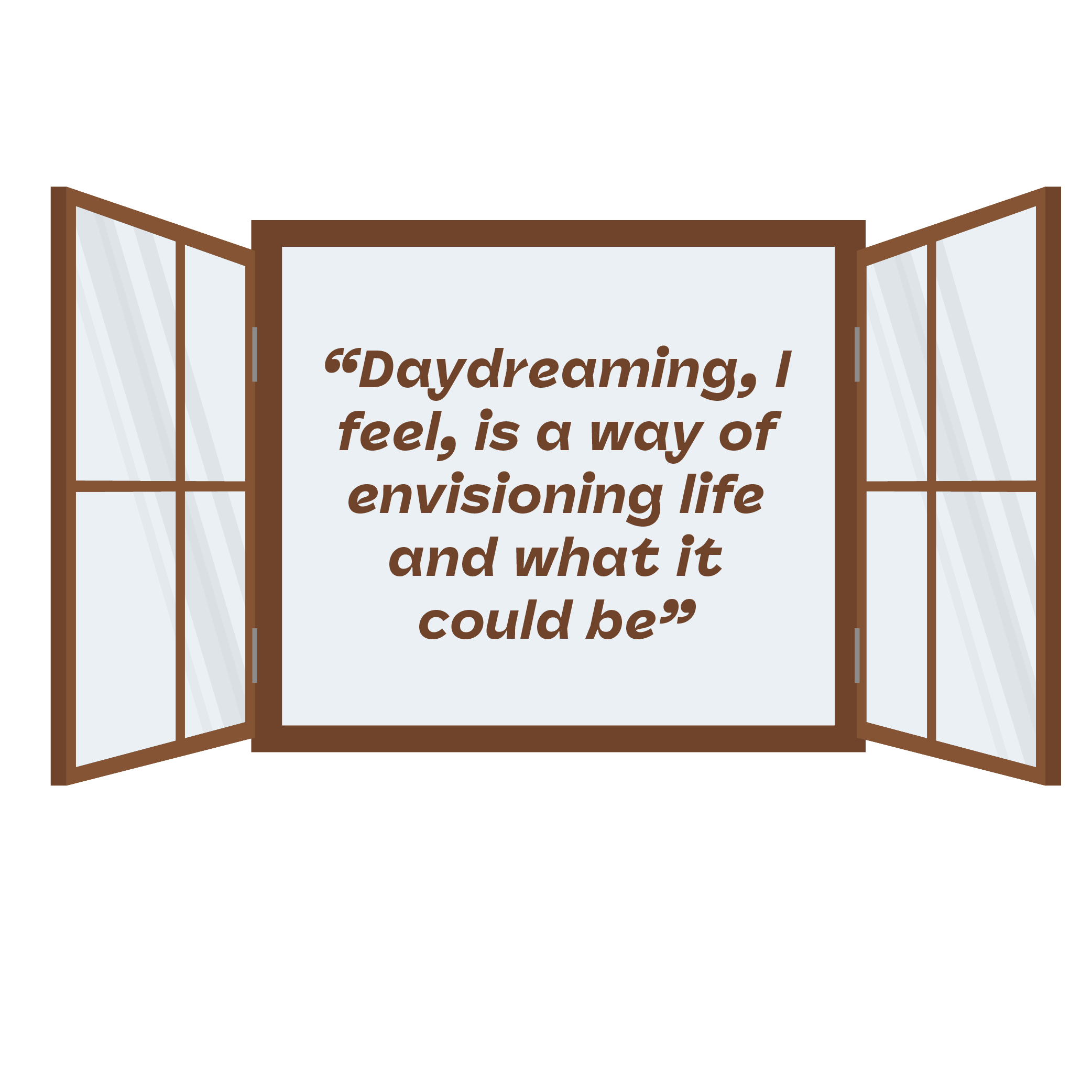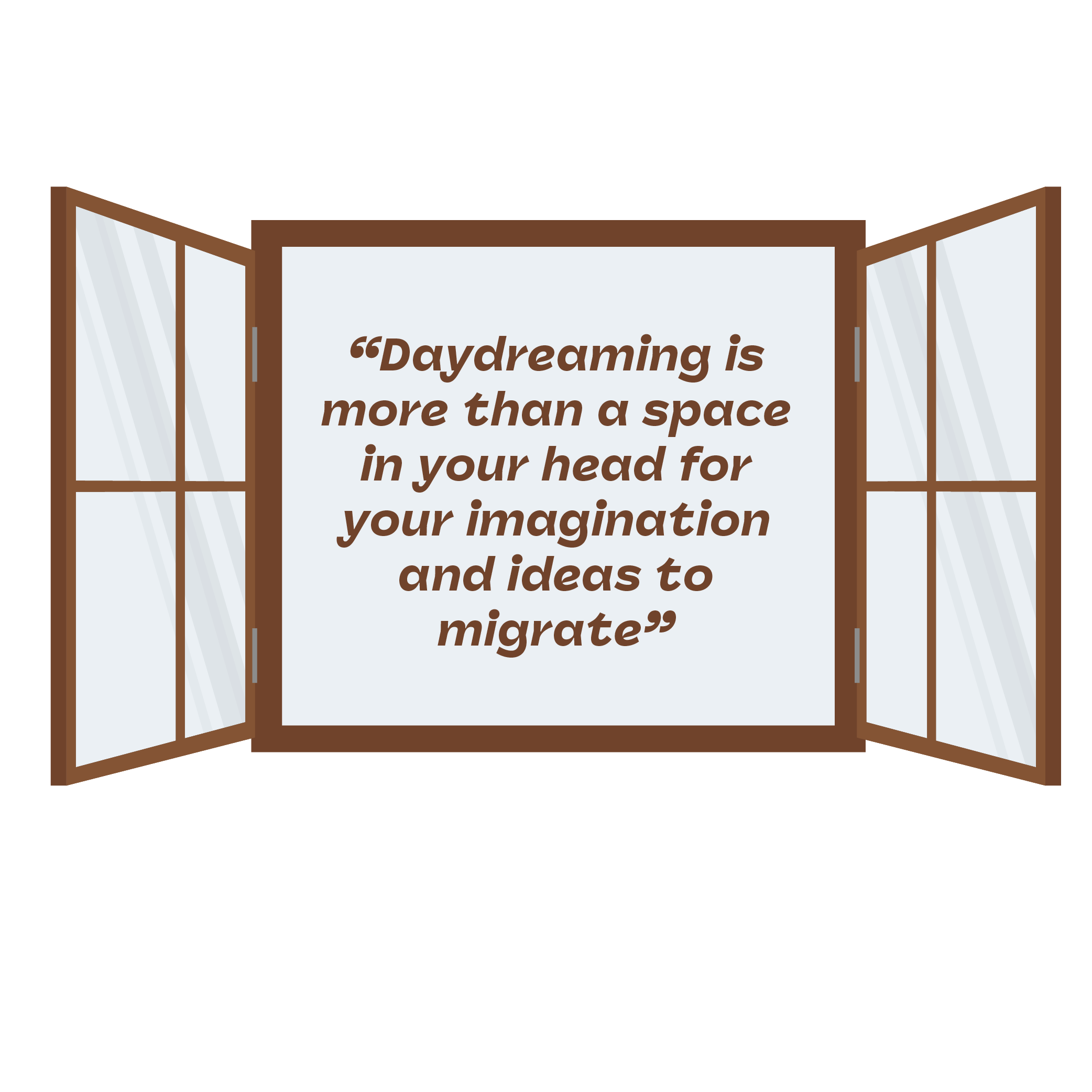
It’s a beautiful, sunny morning that resembles a day straight out of a fairytale. You wake up with books littered around your bed, still dressed in last night’s clothes—shorts and the battered old Nirvana t-shirt your absent father left you before
he
left
you
.
Reaching up, you adjust your dirty blonde ponytail into a messy bun. As you slip into your distressed black high-tops, you grab the latest steamy romance novel you’ve been hooked on and head downstairs to find your mother chatting with 12 strikingly handsome boys.
“Mom, what is this?” you exclaim, clearly confused.
“Well daughter, I had to sell you to these fine gentlemen who are actually all part of two boy bands. I lost my job and needed the money. Good luck!” She informs you as she shoves a duffle bag into your arms. She leaves the room—but not before issuing a warning.
“Be careful boys, she’s not your average 16-year-old.”
12 pairs of eyes take in your appearance as realization sets in. Your mom didn’t just sell you to a group of random guys, she sold you to ONE DIRECTION AND BTS! Only she didn’t, and this is all inside your head. CUT!
Daydreams like this have been a way for third-year professional communications student Yasmeen Shawish to shut out the world and let her imagination run wild. Creating intricate stories to spice up a boring dinner with her parents or make a quick grocery store run more entertaining allows Shawish to escape from reality.
In the event that there just aren’t enough creative juices to conjure her own stories, the doors of fanfiction sites like Wattpad and never-ending searches on Google Images are open 24/7. For Shawish, these bad boys were always ready to sustain the perfect settings in order to indulge in a little one-on-one session with popular band members or a shirtless novel heartthrob.
“Oh my god, he [would say] exactly what I wanted him to say,” says Shawish, reminiscing on stories she’d read with countless points-of-view (POVs) and ‘imagines,”—short scenarios written by others as a means to express their delusions, commonly referred to as ‘delulu.’

Fanfictions and online POVs have long fueled the burning flame some of us may have for celebrities, our favourite characters or those we admire and dream to be. Being told to be realistic, aim lower or “they would never date you” is such a bummer.
Why should you be realistic if you can delude yourself to do the exact opposite? Shawish explains that these “imagines” can feed “delulu” by capturing someone’s dreams in words. “Someone as delusional as you already wrote it,” she says.
Claire Champigny, a pediatric neuropsychologist and post-doctoral fellow at the Hospital for Sick Children in Toronto, describes daydreaming as a way to let your imagination relieve some of the burden of reality and allow you to relax by relying on a healthy coping mechanism.
“Daydreaming is supposed to be either a fun or relaxing way to think about things that make you happy,” says Champigny. “It’s something that’s supposed to be enjoyable [but] it can [also] just be a coping mechanism if you’re going through something that’s a bit emotionally difficult or if you’re just bored.”
For the younger generation—including students like Shawish—daydreams about reality tend to manifest as a type of “escape” or coping mechanism. The delusions in question could certainly worry parents if ever mentioned in passing. Dear parents, we can’t all be raw-dogging through life without wearing a pair of rose-coloured glasses.
Shawish says that she uses daydreaming like an escape to distract from all of her responsibilities whenever she has spare time or when she wants her brain to be focused on something. “[It’s] almost like watching TV.”

For fifth-year RTA media production student Alex Mousavi, middle school was a time to daydream about what life could be like beyond just going home for the day after class.
“I’d be daydreaming about the lifestyles that I want to have when I grow up,” he says, recounting how he’d dreamed about living in Los Angeles (L.A.) as an actor. “There is no certainty in life. You have to be almost delusional to envision a life that you actually want.”

Mousavi says having delusions and daydreaming can stem from a variety of different purposes. Early in his life, he developed a focus that was more towards who he wanted to be and what he wanted to accomplish.
“One of my biggest goals in life is to [give] back to my parents,” shares Mousavi. “I always have these daydreams where I’ve made it as an actor, I’m down in L.A. [and] I’ve bought my parents this beautiful, gorgeous house and they have no debt.”
Though his desire to make it as an actor and give back to his parents is still a part of his daydreams, they don’t make up everything he dreams about. Mousavi, for one, is not immune to having delusional thoughts about potential love interests, including celebrity crushes.
“In the back of my mind, [I] imagine going on a date with Emma Watson,” says Mousavi. “I imagine [that] I’ve made it as a big shot actor, I’m working on a movie with Emma and I’m just like, ‘Hey girl, you wanna go grab some dinner?’”

As exciting and fun as it can be to fantasize about meeting your favourite celebrities, Mousavi also knows how unrealistic some of his delusions are.
“[To date Emma Watson] would be phenomenal, but I’m also not that delusional,” elaborates Mousavi. “I know that’s never gonna happen, but a man can dream.”
Sometimes, however, we can get lost and sidetracked by our own delusions. That’s when it’s important to recognize ways we can reel ourselves in when necessary. For example, when personal coping mechanisms—methods that people use to self-regulate stress—fail, surrounding yourself with people who are supportive of you is important.
Mousavi recalls a time when his friends noticed how a personal situation was impacting him and how the way he was coping wasn’t healthy. This caused him to recognize the importance of having a support system. He learned that there is value in surrounding yourself with people who may fully judge you—within reason—and those who don’t sugarcoat the truth when you’re simply being dumb.
“Friends reached out to me and [said], ‘Hey man, we see you hurting yourself, you are indeed delusional about this situation and you need to get out of it,’” explains Mousavi. “I think having [a] support system be your soundboard [helps] in a way where they’re reflecting on the things that you’re saying and giving you some feedback.”
The support you have around you can also make you feel comfortable enough to be as delusional as you’d like and manifest to your heart’s content.

Music offers another road to pure delulu bliss. Existing in the 21st century has quite a few perks, such as having access to thousands of songs at the tips of our fingers. The various possibilities of daydreams, enhanced by the composition, lyrical genius and assisted by heavenly vocals are quite literally endless. Whether you choose to insert yourself into a music video or pick apart a past argument while listening to a heavy metal soundtrack, music is a way to manifest your fantasies.
Third-year nutrition and food student Noor Saleem says, “I do [daydream] all the time with music. That’s why I love music, it gives you an avenue to daydream.”
While this can inspire people to imagine the most absurd settings and ideas, not all music-inspired daydreams are about being in an angsty music video after a woeful experience—after all, we can’t all be the main characters in a soap opera. Sometimes the music takes you to a blissful, fantasy dandyland where it’s just you and your romantic interest—imaginary or real.
“I think a lot of indie [genres] talk about your partner or the love you have for someone else,” says Saleem. “[It’s] kind of [like] seeing your partner in a different light through a song and [the] avenues of the lyrics.”
Saleem, while being a full-time student, is also a mother. After getting married and having a baby, Saleem knows that while she was once the main character of her life, her baby and the various other responsibilities that come with being a parent are at the forefront of her mind, leaving less time to daydream.

“[The daydreams] definitely have become less frequent…I depend on [them] less,” explains Saleem. “I have a baby and a husband, like a whole different life now.”
Though catering to her baby—a whole other human being—and responsibilities to her family have put a gap in those ‘main character’ moments, Saleem recalls a time during her wedding and bachelorette party when she felt like she was giving that main character energy.
“Reflecting back, I was very comfortable with myself and the way that I looked,” explains Saleem. “I guess convincing yourself that everybody else around you thinks the same [way] feeds into the feeling that everyone’s always watching you through [a lens] in a positive way rather than a negative way.”
What were once fantasies about how she could’ve confronted someone she had had an argument with or imagining that Justin Bieber had finally replied to her messages on Instagram, are now some of the coping mechanisms she uses when she’s feeling stressed.
“If I don’t want to study, I try and think about what my future would look like if I didn’t [study] versus what it would look like if I [did],” says Saleem. “I daydream a bit more about the future rather than fixating on the day behind me.”
First-year child and youth care student Mariah Bauly has a similar tactic to Saleem. For Bauly, daydreaming manifests as a motivating force and at times, an incentive to do those darn assignments. It’s almost like dangling a piece of bologna in front of a puppy with a little pill hidden inside. You need to get it over with even if it’s not fun.
“I [daydream about] anything that I need to get done, any of my goals that I want to achieve or if I [need to] do anything in my house,” says Bauly. “I guess in a way, [I] manifest that I’m gonna get it done.”

Daydreaming and delusions—despite serving similar interests—may seem to be synonymous with one another, but Shawish explains that the two aren’t always the same.
Daydreaming can be a space of various possibilities, stories or plotlines, allowing the beauty of our minds to craft the fantasy according to its vibes. Delusions, however, refer more so to the idea of possible success. In your mind, this outcome will be achieved only if everything works out in the exact methodical way you’ve conceived it—which basically never happens.
“Daydreaming is more than a space in your head for your imagination and ideas to migrate,” explains Shawish. “It’s like having a blank movie screen [where] anything can be brought on it.” She says delusions are essentially ideas that are unlikely to happen, if ever.
Mousavi mirrors some of these sentiments, expressing the positive sides of both.
“You also have to have some understanding of when you’re being delusional,” says Mousavi. “Daydreaming, I feel, is a way of envisioning life and what it could be, giving you motivation and hope.”
Especially as university students, there are many things on our minds—assignments, internships, course credits, work and more. It can feel overwhelming just thinking about them, never mind having to do them. Instead, it can be useful to let yourself take a mental break and collect your thoughts.
“It’s totally okay to be overwhelmed and to just want to take a step back to be delusional about [some] things. We as people are creative. We need to daydream [and] we need to have different things to be hopeful for,” adds Mousavi. Champigny mentions that it’s healthy to daydream but if you find that you might be losing your grip on reality or blurring the lines between what’s a daydream versus what’s real life, it may be time to seek help.

“If you’re finding that you’re at work or school and you’re daydreaming to the extent that you’re missing out on important information or getting lost, that’s when it might be kind of impacting your attention,” explains Champigny. “Daydreaming is more likely to be associated with some attentional difficulties. I think it’s more likely that you end up seeking help because you’re finding that your daydreaming is taking over at times.”
With the current state of our world that’s still reeling from the aftermath of a global pandemic and witnessing never-ending violence, our fast-paced lives can become so exhausting.
Given the stress, know that it’s okay to daydream sometimes as a coping mechanism to alleviate the endless bombardment of expected productivity. So be delusional, give yourself some time and space to escape to your daydreams, but also make sure that you can set boundaries of how far you want to delude yourself. If you find yourself negatively being impacted and slowly starting to cross said limits of daydreaming, it may be time to seek help and support—both offered by school services and outside.
“I think if you have more of a relationship with your delusions, then in reality that’s a problem. I feel like you should be delusional [sometimes], we only have one life and we’re not supposed to just limit ourselves,” expresses Shawish. “I think it’s good to be delulu if you are self-aware.”








